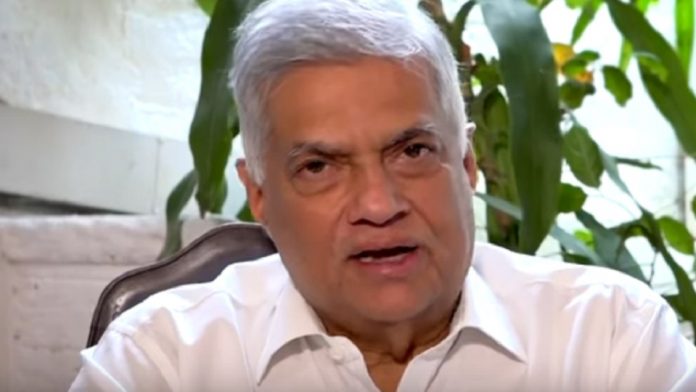The Sri Lanka new administration headed by newly appointed Prime Minister Ranil Wickremasighe has a challenging task of implementing the required policy measures and structural reforms to improve the fiscal performance, finance ministry sources said. .
The ministry has already devised a fiscal plan of “Way forward” to operationalise necessary measures to build the credibility of the economy on a sustained basis.
It has suggested a holistic national effort, with the participation and ownership of all stakeholders including citizens, political entities, the civil service, and private sector, among others.
The three-fold:plan included the reduction of the fiscal deficit to an optimal level, engaging of bilateral and multilateral lenders to secure bridge financing, and minimising Central Bank financing while mobilising other domestic resources within an appropriate real interest rate environment.
Sri Lanka is projecting total revenues to go up to Rs 2.27 trIllion in 2022 from Rs1.,55 trillion in 2021, finance ministry macro models and financial records revealed.
Recurrent spending will increase to Rs. 2.99 trillion in 2022 from Rs 2.81 trillion. The current account deficit is projected to.come down to Rs. 772 billion in 2022 from Rs. 1,,26 trillion in 2021.
Under this fiscal position, cost-based pricing for public utilities and the energy sector will have to be implemented,with social safety nets to support vulnerable segments of society, the policy planning document indicated.
The required reforms to restore fiscal sustainability, institutional capacity, and macroeconomic stability must be sustained beyond an IMF programme, and this requires broad based ownership of such reforms.
The immediate priority of the Government is to regain debt sustainability. This will have to be done through a two-pronged approach, which includes a) Reprofiling the debt stock with technical expertise from legal and financial advisors, and b) Fiscal consolidation measures underpinned by an IMF programme.
Sri Lanka has already experienced the adverse outcomes of failing to implement these reforms in the past, the finance ministry fiscal policy plan observed.
Hence, it is vital that Sri Lanka uses this turbulent situation as an opportunity to undertake difficult but much needed reforms to address the longstanding macroeconomic issues and lay a strong foundation to create a modern and robust economy for future generations to come , ministry emphasised. –
